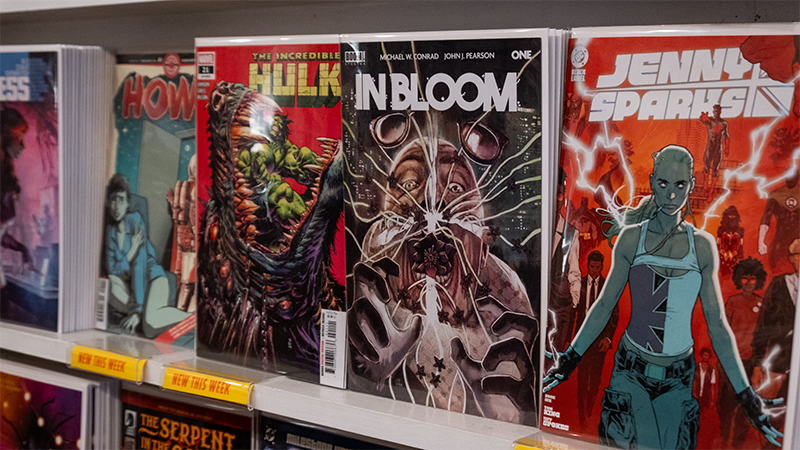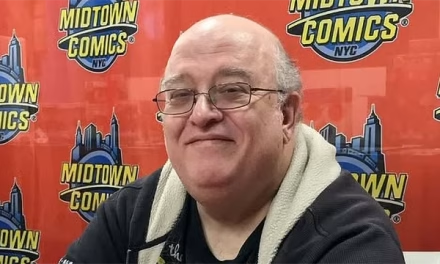The deal between Alliance Entertainment (AENT) and Diamond Comic Distributors has officially imploded—and not just because of bankruptcy headaches. AENT is now suing Diamond, accusing them of hiding critical information about their relationship with Wizards of the Coast (WOTC), the publisher behind Magic: The Gathering. According to the lawsuit, Diamond misrepresented the strength and continuity of that contract during the Chapter 11 sale process, and the fallout may involve more than just broken promises.
Here’s the timeline, stripped down:
AENT was initially the highest bidder for Diamond during its Chapter 11 process. Though initially rejected, the bid was later confirmed by the court. But before the ink dried, AENT pulled out of the deal—because, they say, Diamond had kept a pretty big secret: WOTC wasn’t planning to renew their distributor agreement.
That deal with WOTC represented about 25% of Diamond’s gaming revenue—roughly $39.88 million out of a $161.3 million total. According to AENT, Diamond redacted key contract dates, including the actual expiration date (March 31, 2025, later extended to April 30), and claimed the WOTC relationship was still strong. All of this came out only after the purchase agreement was signed.
AENT says Diamond deliberately withheld this information to keep the sale moving and secure a much higher valuation than they otherwise would have received. When AENT finally got access to unredacted documents, it became clear that WOTC had notified Diamond months earlier—December 2024—that the relationship was ending. WOTC later confirmed this directly in a video call, stating that Diamond’s performance had been declining for years, and that the termination wasn’t sudden or unexpected.
Despite all this, Diamond still won’t return AENT’s $8.5 million deposit, and has offered no reasonable justification for keeping it.
AENT is now suing Diamond, its co-CEOs Charlie Tyson and Dan Hirsch, financial advisor Raymond James, restructuring firm Getzler Henrich, and Diamond’s co-Chief Restructuring Officer Robert Gorin. The complaint accuses them of fraud, breach of contract, and material misrepresentation.
After AENT proposed reducing the $85.36 million purchase price by $18–25 million to account for the lost WOTC revenue, Diamond walked away from the negotiations and stopped returning calls. That, AENT claims, made the breach incurable and justified the termination of the sale.
In the suit filed in Baltimore bankruptcy court, AENT is asking for:
- Return of the $8.5 million deposit (plus interest)
- Judgments for fraud, aiding and abetting fraud, and negligent misrepresentation
- Damages and disgorgement of fees paid to advisors
- Attorney’s fees and other relief as the court sees fit
If the court agrees, Diamond could be on the hook not just for the deposit, but for a significant financial reckoning over what AENT describes as a calculated effort to mislead a buyer during the sale of a bankrupt business.
The collapse of Diamond Comic Distributors is going to hurt, and not just a little. There are an estimated 2,000 to 3,000 comic book stores nationwide, and publishers will be left scrambling for new distribution.
The Exodus from Diamond: A Turning Point for Comic Distribution
Diamond Comic Distributors’ downfall didn’t come out of nowhere—it began unraveling the moment the biggest names in comics decided to walk away.
DC Comics Leaves First (2020)
In April 2020, at the height of the COVID-19 shutdowns, Diamond paused its distribution operations entirely. This gave DC Comics an opening to re-evaluate its reliance on a single distributor. Just two months later, in June 2020, DC officially cut ties with Diamond and moved its distribution to two newly formed companies: Lunar Distribution and UCS Comic Distributors. (UCS has since ceased operations, leaving Lunar as DC’s primary distributor.)
This was the first major crack in the monopoly.
Marvel Follows Suit (2021)
In March 2021, Marvel Comics announced it would end its exclusive distribution agreement with Diamond and instead partner with Penguin Random House Publisher Services (PRHPS) for direct market distribution, starting October 2021. Diamond was offered the option to continue acting as a wholesaler, but without exclusive rights.
At that point, Diamond lost access to the two largest pillars of its business—Marvel and DC—which together had made up over 70% of the North American comic book market for decades.
The Fallout
This shift was profound:
- Diamond’s order volume and revenue cratered. With Marvel and DC gone, it was left with a patchwork of mid-tier and indie publishers like Image, Dark Horse, Boom!, and Dynamite.
- Retailer loyalty began to fray. Many comic shop owners—already frustrated by shipping issues, billing disputes, and lackluster customer service—were now forced to diversify their suppliers.
- Cash flow problems began to surface. Diamond’s parent company, Geppi Family Enterprises, had to restructure debt and slash operations.
- The company never really recovered. Losing the exclusives gutted its market leverage and opened the door for competitors like Lunar and PRHPS to establish themselves as credible long-term alternatives.
By the time of the AENT deal in 2024–2025, Diamond was a shell of its former self, and the value of its business rested heavily on its gaming distribution arm (notably its deal with Wizards of the Coast)—which, as we’ve seen, has now also slipped through its fingers.Diamond’s collapse may influence the broader comic book market, which was valued at approximately $1.23 billion in the U.S. in 2024. The disruption could accelerate shifts toward digital distribution and direct-to-consumer models, as publishers seek more stable and controllable channels. Additionally, it may prompt consolidation among smaller distributors or inspire the emergence of new players aiming to fill the void left by Diamond.
Where It’s All Going
The bottom line is, basically, buckle up, because it’s not going to get better any time soon. The fall of a central distributor like Diamond presents significant challenges. Retailers, publishers, and consumers alike are going to be dealing with the fallout from this for a long time, and curtailment of availability of comics distribution may be a catestrophic problem.
We don’t know what the future of comicbooks looks like from here, but we know one thing for sure: this isn’t it.
![]()













You must be logged in to post a comment.